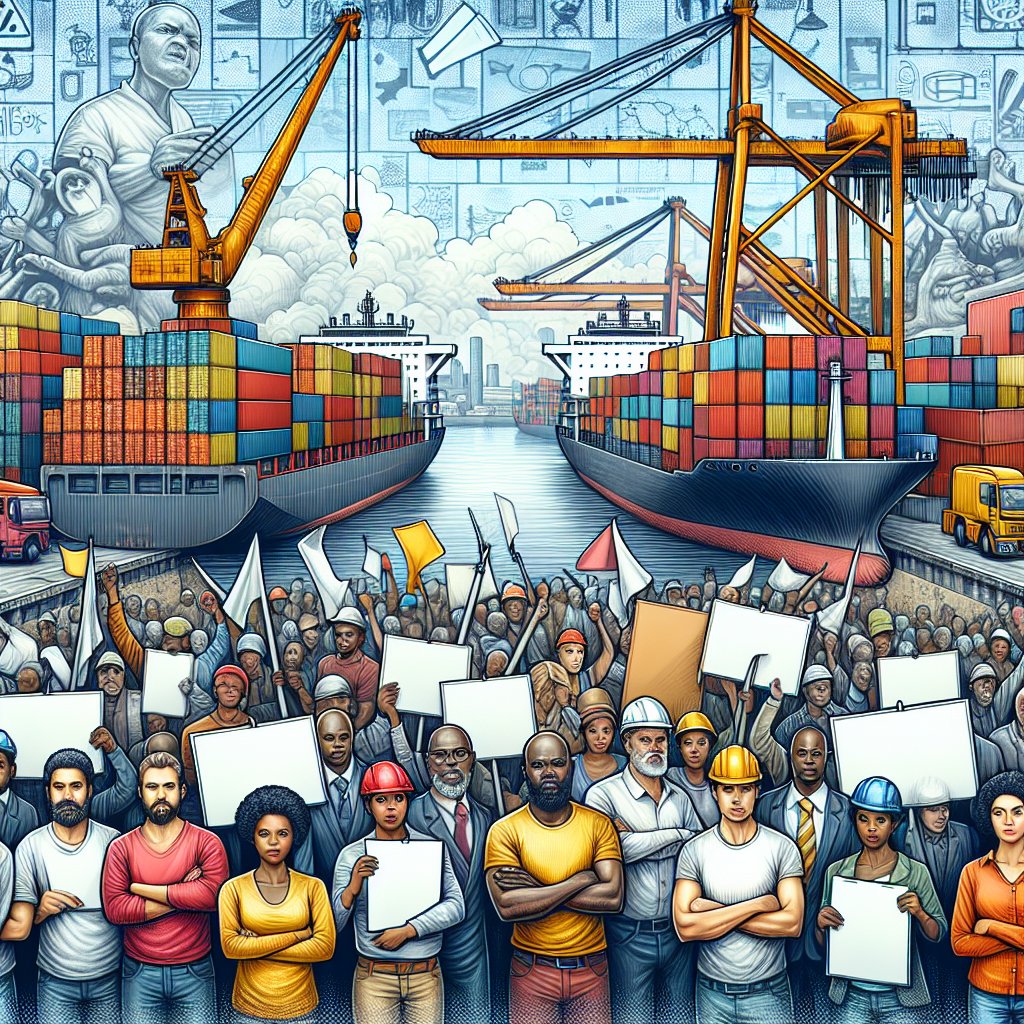Content created by Bailey our AI journalist
South African Labor Unions Pose Challenge to Durban Port Terminal Deal
In a critical juncture for South Africa’s maritime economy, a proposed deal to sell a significant stake in the Durban Port Terminal to Filipino billionaire Enrique Razon's International Container Terminal Services (ICTSI) stands on uncertain ground. This comes as powerful labor unions, the United National Transport Union (UNTU) and South African Transport and Allied Workers Union (SATAWU), exert pressure to secure no job cuts over a 25-year contract period - a demand set to test the resolve and flexibility of both ICTSI and Transnet.
The acquisition by ICTSI was announced with optimism in July as a means to revitalize sub-Saharan Africa's largest container port. If successful, the deal would notably increase the port's capacity from the current 2 million twenty-foot equivalent units to 2.8 million, while injecting much-needed competitiveness back into the hub which, according to a World Bank index, ranks worryingly at 341st out of 348 global container ports.
Such an upgrade for the Durban Container Terminal Pier 2 doesn't solely aim at enhancing capacity. It is also seen as vital to stemming the tide against the near collapse of the region’s export operations. Struggling to maintain operational efficiency, the state-owned port and freight-rail conglomerate, Transnet, has witnessed diminishing returns, directly impacting national exports, tax revenue, and ultimately, economic growth.
However, the road to this infrastructural and operational renovation is fraught with opposition from the labor unions key to the port’s function. Both UNTU and SATAWU, claiming adherence to worker protection and rights, have placed stringent conditions on the progression of this contract. These demands are not only about job security; the unions also call for the maintenance of current conditions of service, as per their general secretaries.
The response of ICTSI and Transnet to these demands has been a sticking point. The unions contend that their concerns, submitted prior to December, have been met with an inadequate level of attentiveness. Despite Transnet's assertion of engaging with the unions, including guarantees that employees won't suffer job losses as they transition to the new joint venture arrangement, skepticism remains.
A failure to meet these demands could signal the end of South Africa’s first foray into privatizing a stake in its ports, marking a significant setback for Public Enterprises Minister Pravin Gordhan, who champions private sector involvement for state firm revitalization. Similar efforts on other fronts, such as the South African Airways and private operation of freight rail, have either not concluded or have been halted.
The insistence on no job cuts reveals both the power dynamics within the South African socio-economic landscape and the unique nexus of labor unions with the ruling African National Congress (ANC). This relationship raises intricate questions about the influence and priorities of labor unions regarding national strategic decision-making.
While the value of the deal remains undisclosed, Transnet has its eyes on the future, where growth and minimized risk of job cuts spell out a more efficient horizon. The assets, valued at R2.5 billion, are part of a strategic vision to regain regional and global competitiveness that has been eroded by outdated infrastructure and operational challenges.
The dilemma South Africa faces is clear: can an accord be reached to satisfy both the economic imperative of revitalizing a crucial port and the socio-political pressure from labor unions vehemently protecting worker rights? The resolution of these negotiations will not only shape the future of maritime trade in South Africa but will also reflect the country's ability to navigate complex socio-economic transformations.










